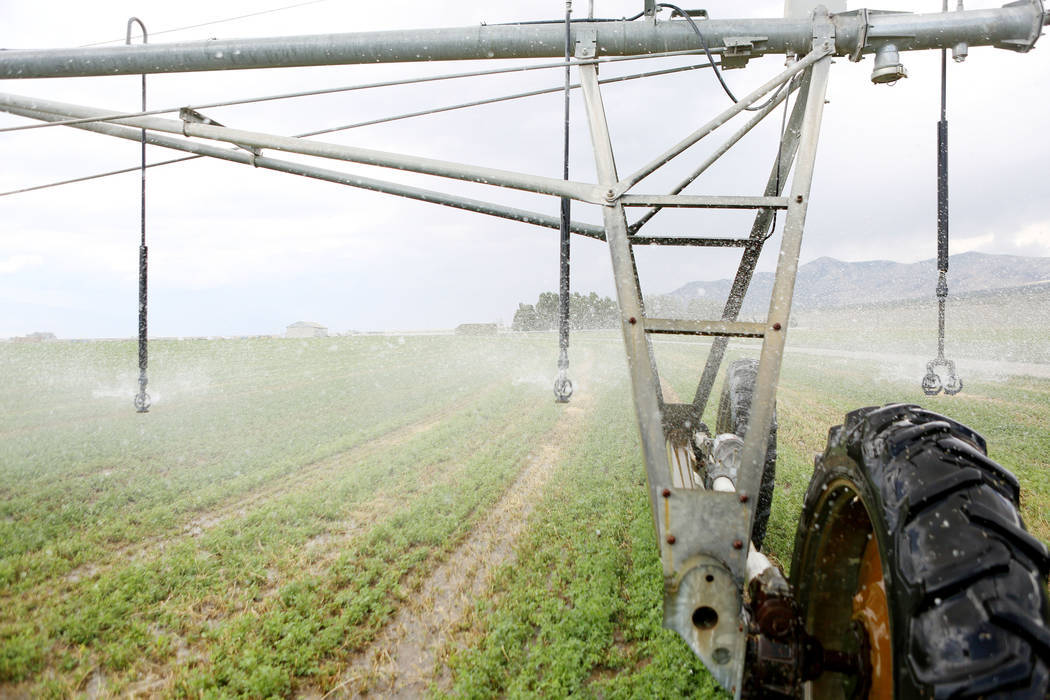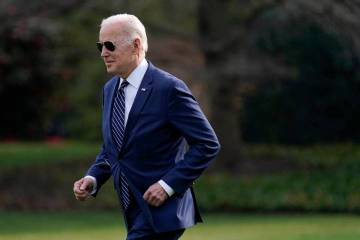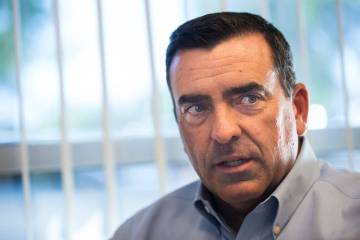Nevada Republicans, environmentalists pan proposed water laws
It’s not often that Republican lawmakers and progressive environmental groups find themselves on the same side of a policy debate in the Nevada Legislature.
Water policy, however, has a knack for making such strange bedfellows.
In this case, it is a pair of proposals from state water officials — Assembly bills 30 and 51 — that brought them together. The bills were heard Wednesday in the Assembly Committee on Natural Resources, Agriculture and Mining.
Officials from the state Department of Conservation and Natural Resources said that the bills would add clarity to Nevada’s murky water laws and allow the state to better allocate water rights in the driest state of the nation.
DCNR Director Bradley Crowell said the bills are necessary as the state faces a “very real and growing possibility” that the federal government will soon curtail water usage from the Colorado River. That, he said, would cause the state’s water issues to become “magnified exponentially.”
“The status quo is not an option,” Crowell told lawmakers.
But environmental groups, farmers, ranchers, Native American tribes and rural county officials argued that the two bills would grant uninhibited power to the state engineer’s office and lead to the the greenlighting of the long-standing proposal to pump groundwater from eastern Nevada to Las Vegas.
“This bill upends Nevada water law as we know it,” said Kyle Roerink, executive director of the Great Basin Water Network, in testifying against AB30.
Patrick Donnelly, an environmentalist and state director for the Center for Biological Diversity, specifically called out AB30 as a path to enabling the pipeline project, even if that is not the DCNR’s intent with the bill.
“It would be the most destructive project in the history of the Silver State’s environment,” he said.
Republican lawmakers on the committee took turns questioning the water officials, including acting State Engineer Tim Wilson, over the bills. John Ellison, R-Elko, asked whether AB30 was “even necessary.”
“It is necessary,” Crowell said. “Without it we are left with two conflicting statutes. No matter which one we follow, we end up in court over our decision.”
And those lawsuits — and the costs associated with them — are starting to pile up, said Micheline Fairbank, an attorney for the state Division of Water Resources. And that’s especially been the case in the last two years, she added, as the department has seen an increase in such lawsuits.
Lawmakers took no action on the bill Wednesday.
Pipeline politics
Opponents hammered the bills as being a path to allowing the Southern Nevada Water Authority’s long-standing proposal to build a 300-mile pipeline to pump groundwater from eastern Nevada to Las Vegas with an estimated price tag of $15 billion. The goal, according to the water authority, is to eventually supply the valley’s growing population and provide a backup supply for the area that gets 90 percent of its water from the Colorado River.
A bill that included similar provisions to those in the two bills also made its way through the 2017 Legislature. The bill passed in the Democrat-controlled Assembly two years ago, with all but two Democrats voting for the bill. But the bill died in committee in the Senate without a vote.
If the bills do move forward this time around, it could set up one of the first major tests for Democratic Gov. Steve Sisolak’s campaign promises. In an op-ed to the Elko Daily Free Press in October, then-candidate Sisolak made clear that he opposes the pipeline project.
“My opinion is that this project is not a smart or effective way to spend what is projected to cost more than $15 billion. This plan is nothing more than a 20th-century band-aid to a 21st-century problem,” he wrote.
Contact Capital Bureau Chief Colton Lochhead at clochhead@reviewjournal.com or 775-461-3820. Follow @ColtonLochhead on Twitter.























